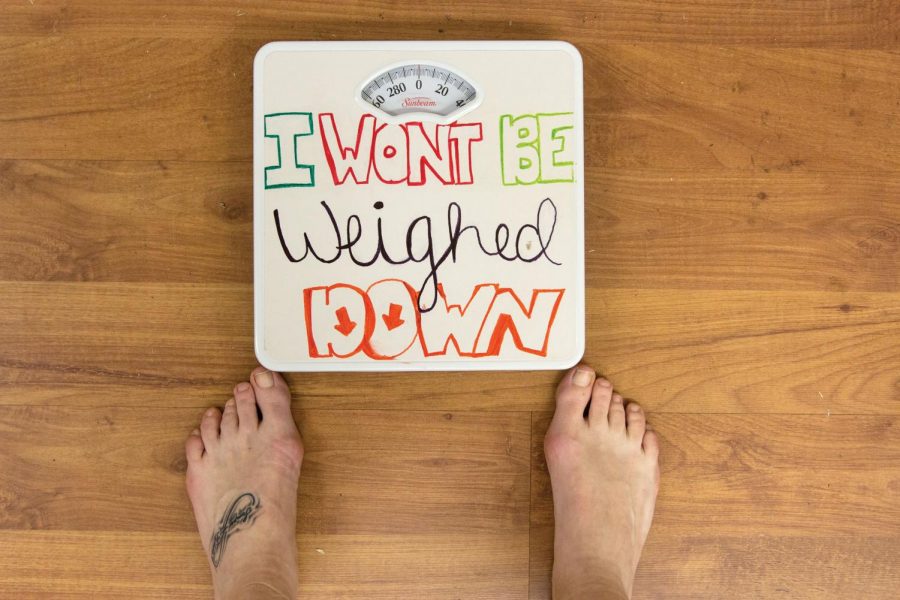Campus discusses eating disorders
March 5, 2015
In addition to being the month of love, February also served as Eating Disorder Awareness Month.
“It is a progressive, fatal illness,” said Senior Licensed Mental Health Counselor Jennifer Berry. “Anorexia has the third highest mortality rate in the mental health world.”
She said 40 percent of college age people have serious concerns with their physical beauty, which would translate to about 2,400
UNA students.
If there are 4,000 women on campus, statistically speaking, 800 suffer from a clinical eating disorder, she said.
“Being in the Pride of Dixie as a Lionette, I definitely felt the pressure,” said sophomore Kelly Cochran.
The last week of February the Women’s Center and Student Counseling Services teamed up to host “Feel Good Naked Week” to promote positive body image.
“We are not in any way trying to promote indecency,” said Women’s Center Coordinator Emily Kelley. “We just want kids to feel comfortable in their own skin.”
There are 20 million women and 10 million men in the U.S. who suffer from anorexia nervosa, bulimia nervosa, binge eating disorder or an eating disorder not otherwise specified, according to National Eating Disorder Association (NEDA).
“We’re allowing society to determine what’s healthy and unhealthy and what looks good and bad,” Berry said. “We’re letting external factors determine what really should happen internally.”
Societal changes may be the cause of the newer eating disorder trends,
she said.
Ten percent of university age men and 20 percent of university age women actively try to lose weight in an attempt “to boost their physical appearance,” according to NEDA.
“Everybody that I’ve ever worked with has thought it was about the food but it really isn’t about the food,” Berry said. “It’s really about what’s going on within the person. The food is just
the vice. It’s just like an alcoholic who uses alcohol or a drug addict who uses drugs. It’s just the vice to help that person manage what else is going on with them.”
Freshman Caleb Lewis said he believes eating disorders can affect both men and women.
“Peer pressure is a factor and standards set by society that everyone feels pressure to uphold,” he said.
Young adults are constantly reminded they could be better,
Berry said.
“The health of the school depends on the health of its students — both mental and physical,” Kelley said. “I want kids to know they are accepted and loved as they are.”
A change in trends has to start with students, Berry said.
“We have to start saying this is not acceptable,” she said. “If I don’t have to look like every female or male on campus, that gives me some fluctuation about the way I am. I think from a student standpoint, the more we appreciate differences versus trying to make everyone the same, the more likely we’re going to be to not put such pressure on people.”
If a student feels he or she knows someone who may have an eating disorder, Berry said she encourages them to contact
a professional.
For more information or support, visit www.nationaleatingdisorder.org, or contact the Women’s Center at 765-6198 or Student Counseling Services at 765-5215.












